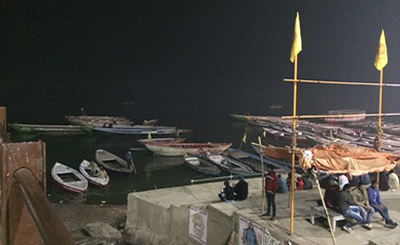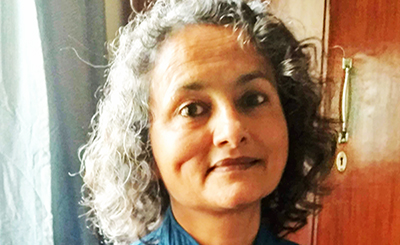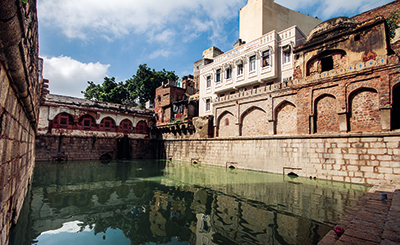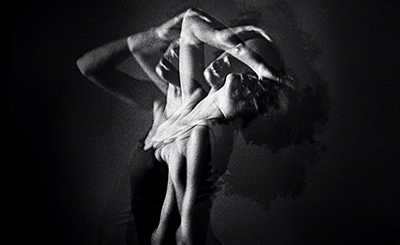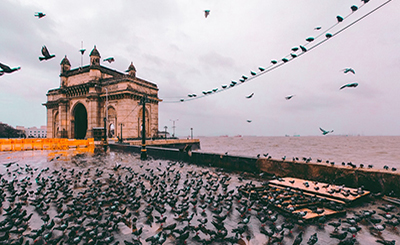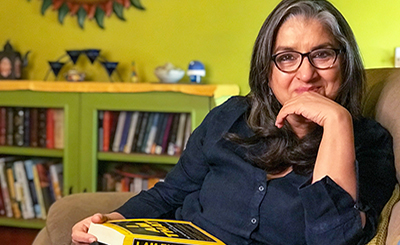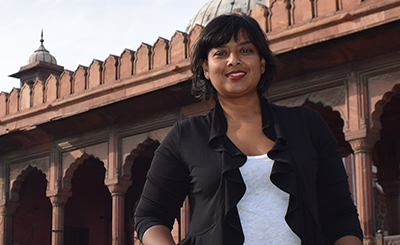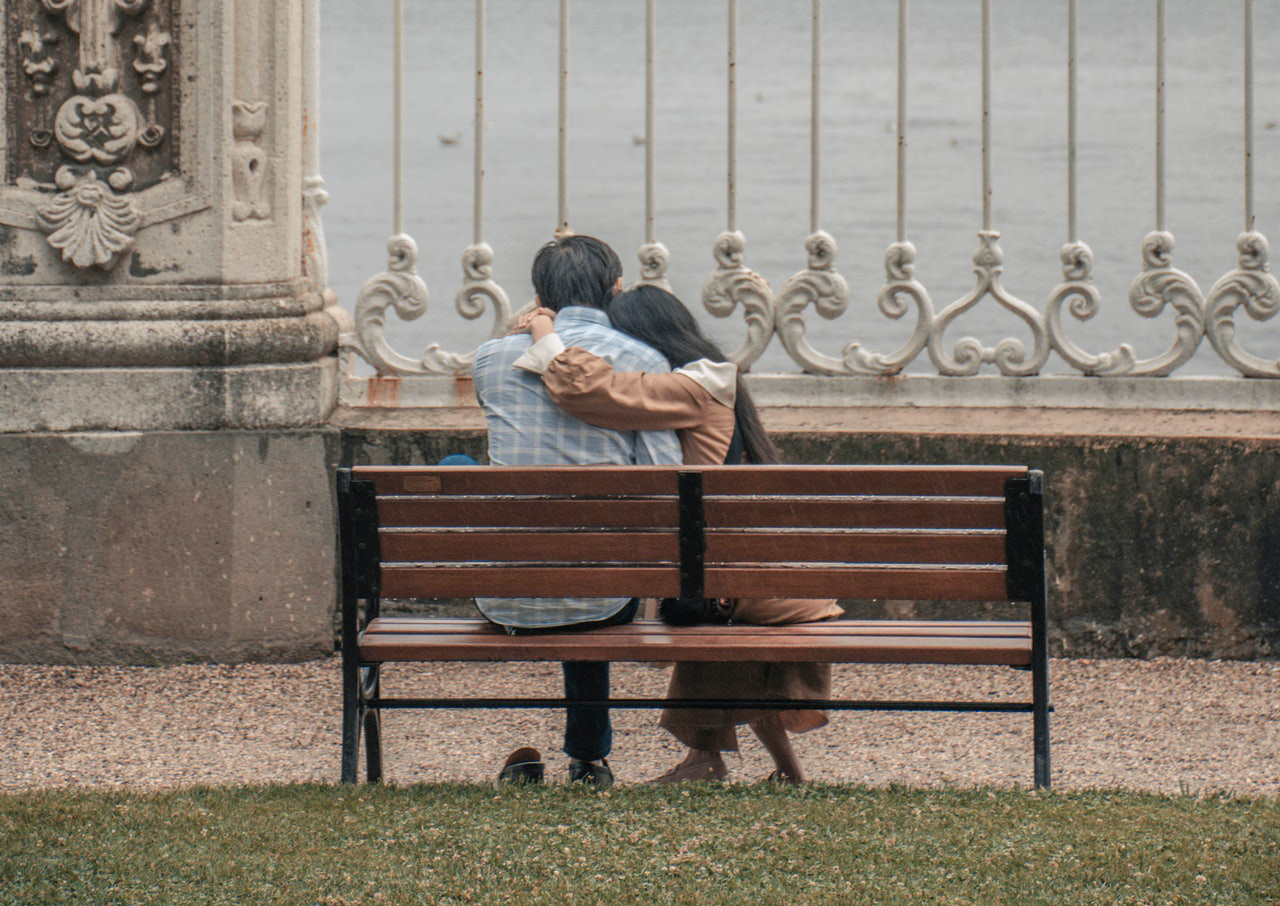
‘Poetry is like second skin, I wear it everyday’
Childhood spent in Asansol was very impactful in my early schooling years, later coming to Mumbai and growing in a Sindhi household, father’s stories of Sindh influenced my writing. Along with the stories there was a feeling of nostalgia for the ancestral home in Karachi, alienation and identity crises-no one spoke about it in that many words but the melancholy existed and it seeped into my psyche and my writing. There is a constant urge to connect with my roots as I fathom time is slipping and so is a language and culture. From the past five years, I have been working on Sindhi translations of Sindhi Sufi poet Sachal Sarmast co-translating them into English with a spiritual teacher. The short poems are called ‘kafi’ and are generally sung in the dargah.
During these years, I got drawn to spirituality as I started working parallelly as a healer. Both were providential sources of joy and inspiration for me. Since I have a background in commerce, I acquainted myself to poetry by reading poetry and comprehending the mechanism of a poem. My poetry is influenced by the nature poets Wordsworth and Keats; Sylvia Plath, Emily Dickinson and Rumi. A few years back, I completed my second masters this time in English literature opening a repertoire of poetry by Ezra Pound, André Breton, e.e. Cummings, T.S. Eliot — all stirring my poetic influences. Charles Baudelaire’s Theory of Correspondence, “Everything-form, movement, number, colour, perfume in the natural world is significative, reciprocal, converse and correspondent” — This holds true for poetry as well which is existential in our lives. My writing delves in themes like partition, introspection, the world of the unknown, universe and love-the quintessential theme. Invisible Eye (2016), my first book of poems, is a collection of nostalgia, stories of my father’s childhood and memories encapsulated in the form of poetry. The Empress (Hawakal 2018) is my second book which is dedicated to my mother. The title is inspired by the tarot card of the same name which symbolises abundance of creativity and Mother nature.
I love the mystery of a poem. I’m never certain of how the poem is going to end — I let the poem take its own journey. Some of my poems are peppered with images of dreams from the subconscious and unconscious mind. Poems have their own temperament. I give them freedom to say what they want to. There’s nothing more gratifying than crafting a poem.
I experience with forms like haibun, haiku, prose and found poetry because the newness of form intrigues me. I try to write every day, escaping into my poetry bubble but I have realised I write best in the daily chaos and mundaneness. During the pandemic, I wrote on a mélange of themes — death, loss of a partner and isolation. Few of my poems spoke about the claustrophobia of sitting inside four walls, it was a time for retrospection and inward thinking. The following poems have shades of hope, acceptance and closure.
Lovers in a Cage
Again, and again even though we know love’s landscape
is not perfect we feast on it
Again, and again even though we know love’s landscape
we promise never to use our raging tongues
Again, and again even though we know love’s landscape
the kintsugi kind of love gives us faith
Again, and again even though we know love’s landscape
the lovers they reincarnate to return as each other
Again, and again even though we know love’s landscape
the days of isolation they multiply
Again, and again even though we know love’s landscape,
we stay fragmented atypical to the need of being all whole and one.
The Walk
The day does not seem to end, will the sun not set today, Father. My shadow has left my side
long back, I walk with hunger now. Six-year old Keshav is walking in syncholding the left
hand of his father. They are walking west towards their hometown in the Gondia district. His
mother walks two steps behind balancing a cloth potli on the head and clutching his baby
sister in the other arm. Her eyes are gleaming like empty vessels — It is the second night in
a row, the snaking railway track is like a drunk mirage.The moon and stars are fastened to the
sultry sky, the air is muggy with anticipation, the mind is blank astwilight sets in. Tuka says
hand of his father. They are walking west towards their hometown in the Gondia district. His
mother walks two steps behind balancing a cloth potli on the head and clutching his baby
sister in the other arm. Her eyes are gleaming like empty vessels — It is the second night in
a row, the snaking railway track is like a drunk mirage.The moon and stars are fastened to the
sultry sky, the air is muggy with anticipation, the mind is blank astwilight sets in. Tuka says
light is lit
within the lamp
walking barefoot
within the lamp
walking barefoot
Virus
Some people come to this universe
to be grave diggers
Some people come to help others cross over
to another world
Some people come to life
to walk alongside your spirit like a flaner
they work in unison wrapping your suffering
in a casket of ebony and dried rose petals
sending it afloat safely deep into the waters of the sea.
Pour the day in an empty bottle,
unblocking the baggage of pain-
befriending strength softly
heave a fistful of Mother Earth-
perfumed by early morning dew
then
Embrace the ache of schism
It is what defines you.
Affirmations
Pluck the fresh Butterfly pea flowers on a rainy day, separating the sepals drop them in a chai
pan with water. Brew with a cinnamon bark, some ginger thrown in generously stirring in
the past karmic patterns. Listen with precision to the gurgling blue concoction, a crystal ball
gathering tepid tears of swansong. Sieve it, serve warm with honey and lime sliced vertically,
pan with water. Brew with a cinnamon bark, some ginger thrown in generously stirring in
the past karmic patterns. Listen with precision to the gurgling blue concoction, a crystal ball
gathering tepid tears of swansong. Sieve it, serve warm with honey and lime sliced vertically,
the spell reads believe and behold —
Look the indigo blue sky
setting your heart ajar —
The Universe in Us
Did you know human souls survive in trees?
every time someone dies
the body decomposes, disintegrates
into a greyish heap of ash
that gets carried away by the wind
into the choppy waters of the sea.
The soul on the other hand
rises like a phoenix from the ashes
fleeting in a soft divine like music
the sound of tinkling cow bells,
the whistling of a baby dolphin,
kneading its way into a giant oak tree perhaps.
Look at its leaves vein-like
just like that of a human hand
breathing and swallowing,
breathing and swallowing
the warm sunlight
sieved through a bough of a tree.
What do these branches seek
looking at the skies open mouthed
gaping at the Universe that
roots them to Mother Universe.
Imagine they are weightless dense souls of children
holding hands encircling the trunk
of a past that’s gone by.
Saving the last flickering of a fire spark,
the last drop of water on a vagrant leaf,
the soft scales of the last butterfly wings.
Chant the dervish’s song
Worship the water God Jhulelal*
Alas! She reaps what we sow
the curse of the wicked man
is eaten by the fiend himself
*Jhulelal: the deity of the Sindhi community
(This poem won The Panorama Special Jury Award 2020, unpublished)
The essay and the poems are part of our Poetry Special Issue (January 2022), curated by Shireen Quadri. © The Punch Magazine. No part of this essay or the poems exclusively featured here should be reproduced anywhere without the prior permission of The Punch Magazine.
More from The Byword
Comments
*Comments will be moderated




